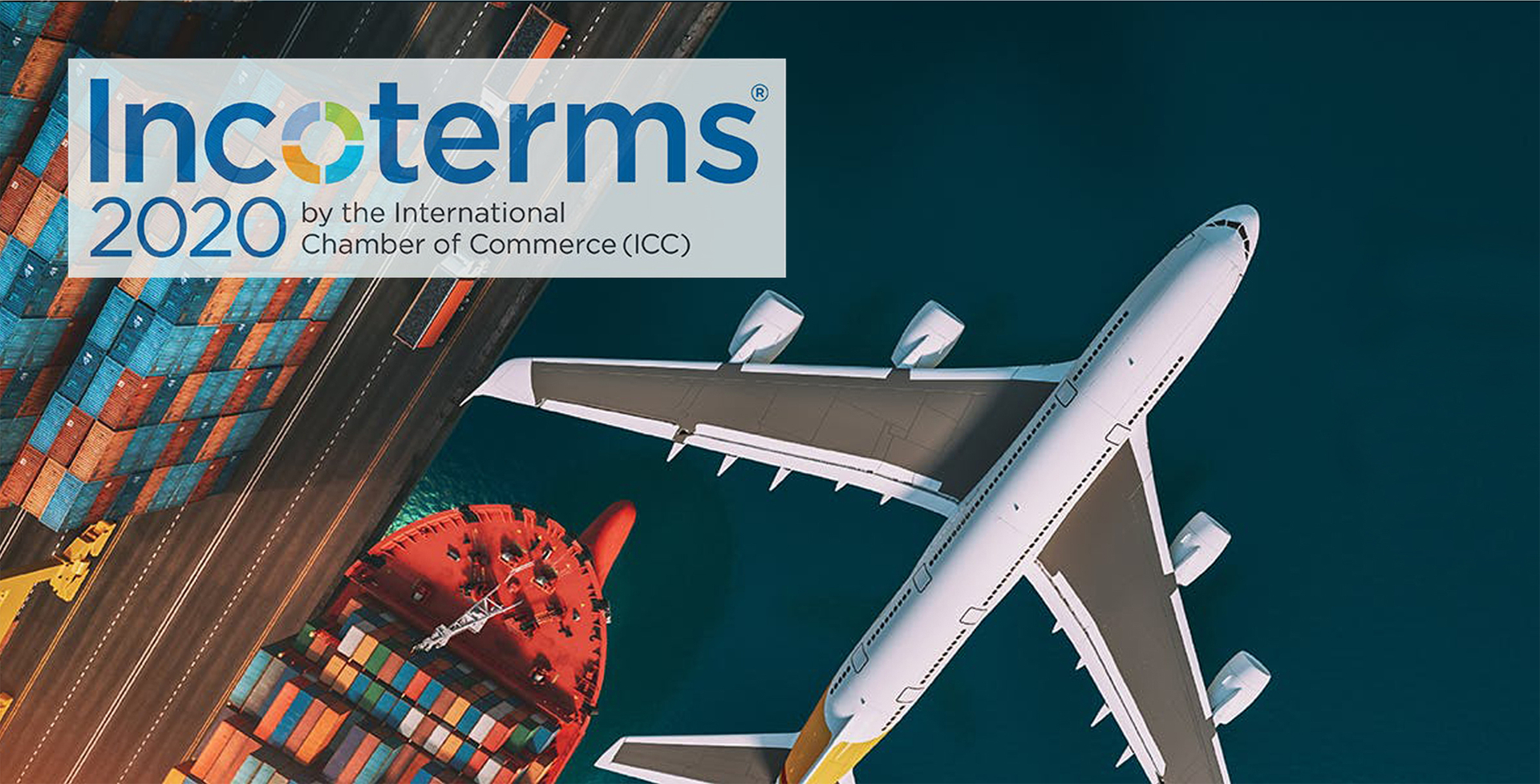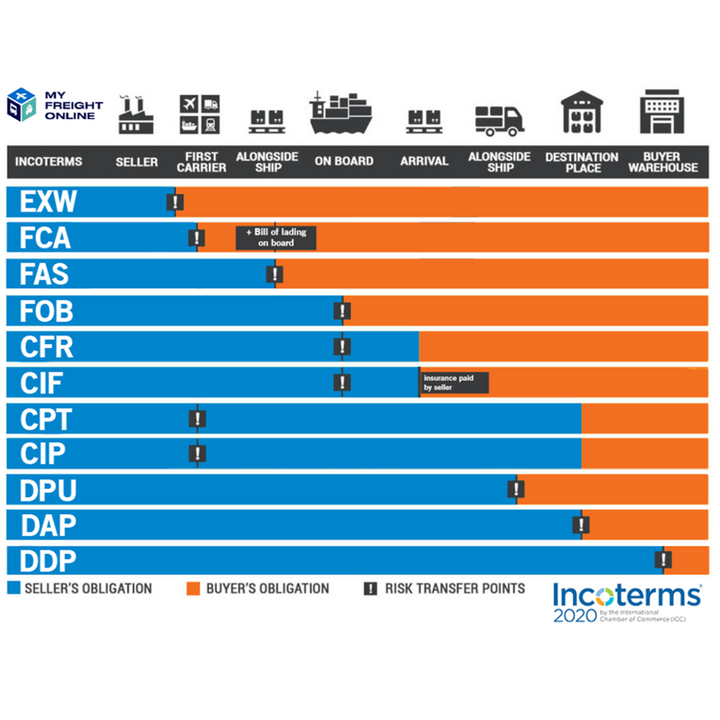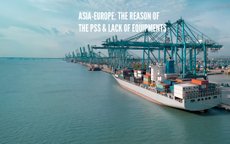ROLE OF INCOTERMS
Since 1990 the International Chamber of Commerce has decided to revise Incoterms every 10 years in order to correspond and adopt best practices, the latter was revised in 2000, 2010, and the last version has been published in January 2020.
Today, there is a list of 11 Incoterms that define the sharing of risk and costs between the seller and the buyer.
The word Incoterms comes from International Commercial Terms. In three letters, these terms reflect the distribution of costs (cost of transport for example) and risks between the different parts of a seller and a buyer.
They define certain obligations, costs, and risks involved in transferring a product. Incoterms will help the buyer and the seller to clarify who will bear the costs. They will also help to specify the moment of the passing of the risk. Here is what they correspond to:
- Incoterms that start with an E: incoterms of departure, that is to say, that the buyer takes care of everything, the seller simply makes the goods available. For example EXW.
- Incoterms that start with an F: incoterms whose main transport is not paid by the seller, it is the buyer who will have to pay, for example, FOB, FCA, or FAS.
- Incoterms that start with a C: Incoterms where the main transportation is paid by the seller. For example CIF, CIP ...
- Incoterms that start with a D: incoterms of arrival, that is to say, that the buyer does not take care of anything, everything is managed and paid by the seller. For example DAP, DDP ...
NEW INCOTERMS 2020, NO BIG CHANGES?
All the members, all countries combined, of the International Chamber of Commerce was in charge of proposing the final version of Incoterms 2020. The ICC had indicated that it was willing to bring more clarity and better understanding, in order to avoid misinterpretations and their possible consequences, generated, about an incoterm.
So this is a big highlight of this 2020 version with a redesign of the official brochure, with a presentation of Incoterms clearer and more precise, including a horizontal summary of obligations. Introductory notes are now part of the rules and become "explanatory notes for users". It was also made in order to facilitate the dissemination: declining rates, a smartphone app for explanatory notes ...
In a logic of simplification and a willingness to bring a better balance in the seller-buyer exchanges, the ICC has taken certain measures, and as a result, some incoterms are going to disappear. Either permanently, or to give birth to new incoterms more in phase with the current practices:
- DAT becomes DPU (Delivery at Place Unloaded)
The other incoterms will not change deeply but evolve at the level of their rules. This is the case of the Incoterm FCA, the most currently used. There is an evolution of the latter which provides an FCA rule with the option "billing on board" in case of payment via bank security:
- the "FCA + bill of lading on board": the parties agree that the buyer will instruct the carrier to provide the seller with proof of loading on board.
In addition, it should be noted that the 2020 version incorporates the concept of own-account transport: the fact for a seller or a buyer to use his own means of transport to transport his goods, so without resorting to a professional transport. This novelty will however only be applicable to the terms FCA, DAP, DPU and DPP.
The 2020 new Incoterms:
EXW : Ex Work
FCA : Free Carrier Alongside + billing onboard option
FAS : Free Alongside Ship
FOB : Free On Board
CFR : Cost and Freight
CIF : Cost Insurance & Freight
CPT : Carriage Paid To
CIP : Carriage and Insurance Paid To
DPU : Delivery at Place Unloaded
DAP : Delivery at Place
DDP : Delivered Duty Paid
WHAT TO REMEMBER
In conclusion, this 2020 version of Incoterms does not bring a profound change, if not: the transformation of DAT into DPU. Then note the changes in the rules for FCA and the bill of lading option and the concept of own-account transport.











